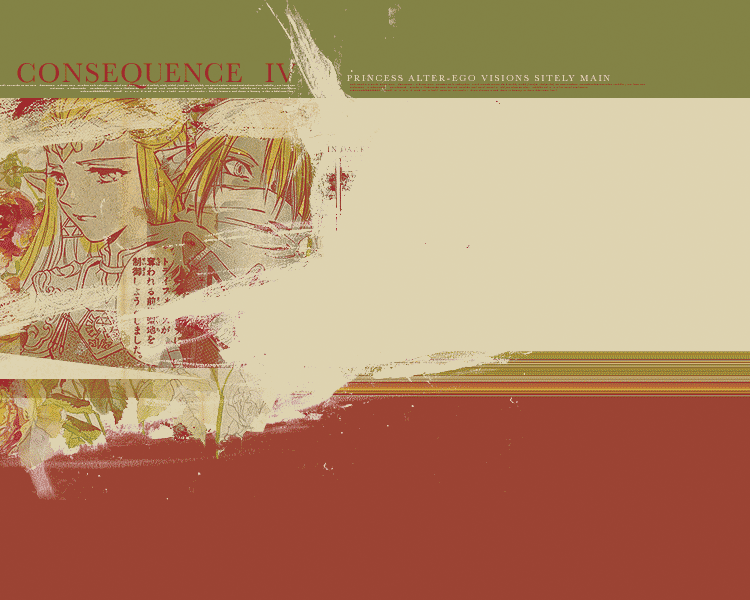
The pain! The terror! The birth-pang of the seer who tells the truth- it whirls me, oh, the storm comes again, the crashing chords! - Aeschylus, Agamemnon
The Birth-Pang of the Seer
Clairvoyance, or the power to see the future, is a power commonly given to young women- indeed, it is almost universally a power for the beautiful young girl or the wisened old sage. Clairvoyants I can think of off the top of my head are Rhapsody, of the trilogy of the same name, Buffy the Vampire Slayer, and Cassandra, the prophet of Troy, who I'm going to talk about at a bit more length.
Clairvoyance literally means "clear seeing", and it is defined by Webster as "ability to perceive matters beyond the range of ordinary perception". Thus, a clairvoyant has the power to see not only the future, but the past and the present more clearly. This is obviously one of the reasons Zelda is so wise- she can understand the state of things and can see the truth beyond most other mortals. This gift, though, is usually a curse, because seers have an awful way of seeing only horrors in their own future. Enter Cassandra, arcytypical clairvoyant extraordinaire.
Cassandra, like Zelda, is princess of a doomed land. She is the daughter of Hecuba and Priam, and a denizen of Troy. After the war, she is taken as a war-prize by Agamemnon, and is brought back to Argos. But Clytaemnestra (my spelling hurts!), Agamemnon's wife, is jealous of Cassandra, and angry with her husband (for sacrificing their daughter), and she slaughters them both brutally. Cassandra could predict the fall of Troy and could see her own demise, but no one would believe her. Orestes, the son of Clytaemnestra and Agamemnon would eventually avenge Cassandra's and his father's death by killing his mother. (What a happy culture the Greeks were.)
Though Cassandra was a true prophet, she was not often believed. Most people tended to think of her as "That silly girl spouting death prophecies." No one very much wanted to believe her, of course, because she would predict nothing but death and destruction, being that she lived in the world of Greek legend. However, Cassandra's special tragedy is that she could see her fate but was still powerless to change it. Her place in myth is that of a true innocent and a victim of cruel irony.
Not so with Zelda. This, I think, just illustrates how awesome she is- she finds herself in the same predicament. Namely, bad things are going to happen to Hyrule, and no one believes her. But Zelda finds someone that does believe her- she doesn't wait until she's about to die to get along with that avenger business. Zelda avoids the traditional curse of clairvoyance by becoming a powerful young woman in her own right. And also by hiring Link to do her dirty work.
So, while Cassandra was a slave of fate, Zelda uses her power shift destiny and create a positive action. This sort of thing is a bit hubristic by Greek standards, and indeed, Zelda does suffer the consequences of her actions- she brought about suffering by trying to act on her own, as a small child. Though Zelda is wise beyond all others, she eventually comes to realize that no one has the wisdom to deal with the forces eternal lightly.

